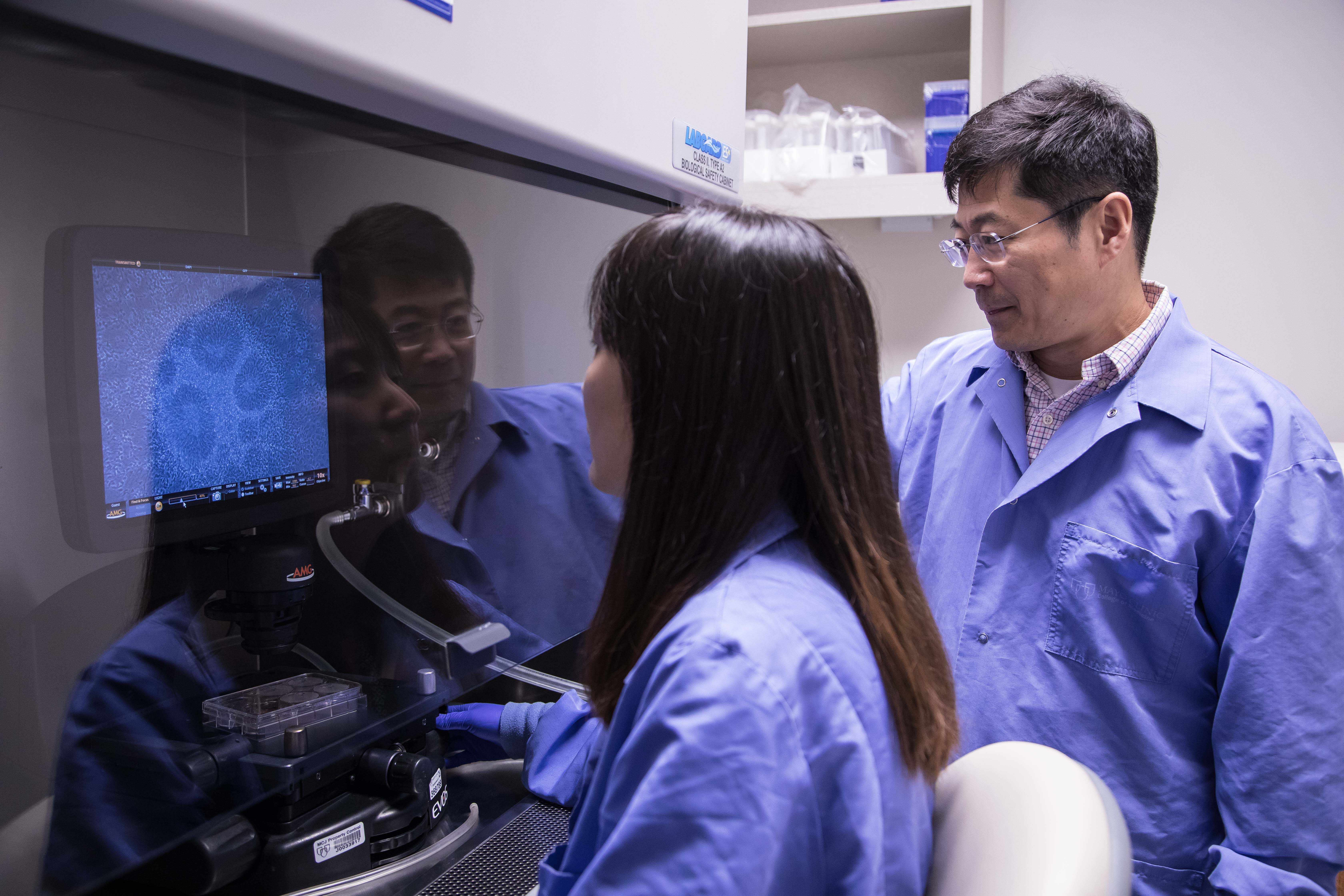Picture yourself on a train ride, looking out the window at the passing scenery ─ a view of the tracks in sight. The train steamrolls ahead at a steady pace for a while, then gradually picks up speed. But something happens — beyond your control — and the train derails.
For patients diagnosed with neurodegenerative diseases such as Alzheimer’s and Parkinson’s, their ride is often similar. The disease follows a usual course, but once it progresses, they no longer have control and are at the mercy of their disease.
https://youtu.be/FgzCsISy900
Watch: Dr. Guojun Bu discuss neurodegenerative diseases.
Journalists: Sound bites from Dr. Guojun Bu are in the downloads.
Mayo Clinic researchers are trying to affect the course of these diseases. And a new laboratory on Mayo Clinic's Florida campus is helping them do just that. The Mayo Clinic Neuroregeneration Lab recently opened in the Birdsall Research Building. The research taking place inside is giving scientists new hope for future treatments that may keep neurodegenerative diseases at bay—at least in a holding pattern—to slow down the path of destruction. The focus of the lab is in its name: regeneration of damaged brain cells.
The new lab features biospecimen processing and stem cell-related research activities. Using skin or blood samples from patients who live with Alzheimer’s, Parkinson’s and other neurodegenerative diseases, researchers are trying to better understand the disease and how it affects each patient. People who have these diseases often carry genetic variants or mutations.

Mayo researchers are able to reprogram and “convert” the skin or blood cells to stem cells. The stem cells can become any type of cell in the body ─ in this case, brain cells that can be studied in the lab.
“This lab enables us to collect and bank cells, and then distribute the cells and cell lines to Mayo Clinic investigators to support their research,” says Dr. Guojun Bu, Mary Lowell Leary Professor of Medicine and director of the Mayo Clinic Neuroregeneration Lab. “The eventual goal is to either slow down the degeneration of neurons or implement some sort of regenerative or replacement therapy.”
Down the line, researchers hope to use the findings of their research to alter the course of devastating brain diseases, correcting gene mutations and defective cellular functions. By recreating a patient’s disease in the lab, they may be able to test new drugs before they are given to a patient. They also hope the lab’s capabilities will enable them to accelerate discoveries into new treatments, as they continue to transform the practice of medicine.







